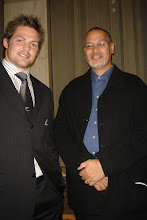 In 1831 Yate persuaded 13 northern chiefs to sign the “Letter to King William.” This petition sought British protection from the French. It seemed that the good Mister Yate used the arrival of the French ship ‘la Favourite’ to stir up the Chiefs into believing that France was about to annexe New Zealand and would take the opportunity to take revenge for the murder of Marion du Fresne some 40 years earlier… as it turns out the French ship was simply continuing their tradition of scientific research and left without doing much at all.
In 1831 Yate persuaded 13 northern chiefs to sign the “Letter to King William.” This petition sought British protection from the French. It seemed that the good Mister Yate used the arrival of the French ship ‘la Favourite’ to stir up the Chiefs into believing that France was about to annexe New Zealand and would take the opportunity to take revenge for the murder of Marion du Fresne some 40 years earlier… as it turns out the French ship was simply continuing their tradition of scientific research and left without doing much at all.What is interesting is that by recognising the letter Britain gave some semblance of recognition of the country itself. Combined with the terrible events surrounding the Elizabeth affair it was enough to encourage the Colonial office under Stephen to look at some way of controlling the behaviour of British citizens in the islands.
Sending a Resident would help to alleviate the situation. Instructions sent to the Governor in Sydney were relayed with the expectation that he would provide a suitable candidate. By all accounts James Busby was an irritating twit. He seems to have continually sought higher office within the administration of the Governor and did not seem to realise how annoying he was.
The new position of resident allowed the Governor to fulfil the Colonial office instructions and to rid himself of a pest at the same time. Unfortunately he disliked Busby so much he refused to provide him with all of the things necessary for the job. A ship, troops were denied him, he even had to plead for the house he needed to live in. Busby had plans for a 500 pound house drawn up, the Governor reduced it to 250 pounds. The problem of course was that while Port Jackson had to provide the Resident they were unwilling to pay for him – there were no taxes to be collected in New Zealand.
A Resident is just about the lowest position available in Diplomatic circles. It ranks below Consul and Ambassador. A resident has few powers and would not normally do more than represent his countries views to his hosts. By appointing Busby however this appears to be a tacit recognition of New Zealand as a sovereign nation.
Busby was expected to do little except keep the peace. Without any formal backup he failed miserably. Thus, the unkind name given to him of “Man’o’war without guns’. He was left in the position of writing letters to anyone who would listen. But he was not entirely witless and recognised the need for an ensign that would allow New Zealand built ships to be registered and allowed to trade with Sydney without being confiscated.
 The Flag chosen in 1834 was negotiated by Busby and a number of Northern Chiefs. Its design was one of three presented to them. When it was gazetted by the Admiralty it again reinforcedthe view of New Zealand as an independent state.
The Flag chosen in 1834 was negotiated by Busby and a number of Northern Chiefs. Its design was one of three presented to them. When it was gazetted by the Admiralty it again reinforcedthe view of New Zealand as an independent state.The following year Busby again exceeded his authority and negotiated with 35 Northern chiefs and created the Declaration of Independence. This was also sent to Great Britain and again it was recognised by the Government.
 In the meantime Baron De Theirry had arrived in the North causing a mild panic amongst some, apart from Busby who sent off a number of wild letters to the Governor and the Colonial office concerning an imminent takeover by the ‘King’ of New Zealand. Luckily for Busby the Nga Puhi of the Hokianga were less than impressed with the Frenchman’s claims to 40,000 acres (sold to him in 1820 by Hika) and allowed him only a few hundred. His French settler promptly rioted and left. Poor old De Theirry ended his days as a piano teacher in Auckland.
In the meantime Baron De Theirry had arrived in the North causing a mild panic amongst some, apart from Busby who sent off a number of wild letters to the Governor and the Colonial office concerning an imminent takeover by the ‘King’ of New Zealand. Luckily for Busby the Nga Puhi of the Hokianga were less than impressed with the Frenchman’s claims to 40,000 acres (sold to him in 1820 by Hika) and allowed him only a few hundred. His French settler promptly rioted and left. Poor old De Theirry ended his days as a piano teacher in Auckland. There was also growing French interest in Akaroa and Busby continued to bombard the Colonial Office with letters of annexation in the south. Not only were the French a colonial threat but the large numbers of American whalers and the appointment of an American Consul (Clendon) was also a matter of concern.
There was also growing French interest in Akaroa and Busby continued to bombard the Colonial Office with letters of annexation in the south. Not only were the French a colonial threat but the large numbers of American whalers and the appointment of an American Consul (Clendon) was also a matter of concern.




No comments:
Post a Comment